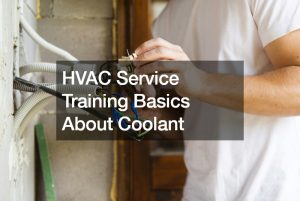Your HVAC system plays an important role in the comfort of your overall home, but it’s important to make sure it’s running efficiently at the risk of your energy bills. Surprisingly, there are some things that could be impacting your HVAC system and causing it to work harder. Here are a few things to keep an eye out for if you notice that your energy bills have been on the rise.
1. Dirty Air Filters

Dirty air filters are one of the most common issues that HVAC systems face. When air filters become clogged with dust, dirt, and other particles, it restricts airflow and makes the system work harder to heat or cool your home. This can lead to increased energy consumption and decreased efficiency.
To avoid these issues, air filters should be checked and replaced regularly. Typically, air filters should be replaced every 1-3 months, depending on the type of filter and the level of pollutants in your home. Regularly changing air filters can improve indoor air quality, reduce strain on the HVAC system, and lower energy costs.
Hiring a professional HVAC company to perform regular maintenance can ensure that your air filters are changed on schedule and that your system is operating efficiently. A high-quality HVAC company can also provide recommendations on the best filters for your system and help you optimize its performance.
2. Leaky Ductwork

Leaky ductwork can significantly impact the efficiency of your HVAC system. Signs of leaky ductwork include uneven heating or cooling in different rooms, increased dust and debris around vents, and high energy bills. When ducts are leaking, conditioned air escapes before reaching its intended destination, leading to energy waste and reduced comfort.
Sealing leaky ductwork is essential for maximizing energy efficiency and comfort in your home. To seal ducts, you can use mastic sealant or metal tape to cover any gaps or cracks. It’s also important to insulate ducts in unconditioned spaces to prevent energy loss. By addressing leaky ductwork, you can improve airflow, reduce energy costs, and extend the life of your HVAC system.
If you’re unsure how to identify or seal leaky ductwork, it’s best to consult with a professional HVAC contractor. A qualified HVAC technician can perform a thorough inspection of your ductwork, identify any leaks, and provide recommendations for sealing and insulating your ducts to improve system efficiency.
3. Poor Insulation and Roofing Issues

Poor insulation can have a significant impact on the performance of your HVAC system. Inadequate insulation can result in heat loss during the winter and heat gain during the summer, making your HVAC system work harder to maintain indoor comfort. Areas to check for insulation issues include the attic, walls, floors, and basement.
Proper insulation is essential for maintaining consistent indoor temperatures and reducing energy consumption. By adding or upgrading insulation in key areas of your home, you can improve comfort, reduce strain on your HVAC system, and lower energy costs. Good insulation also helps to create a barrier against outdoor noise and pollutants, enhancing indoor air quality.
Roofing and siding can also sometimes be responsible for high energy bills. Be sure to check your home’s siding and roofing to determine if there are any gaps or issues that are allowing your indoor air to escape. You may need a roof repair service to provide a thorough inspection. A roofing service can determine if there are any shingles missing or leaks. It’s also a good idea to consult with a local roofer or siding installation company if you’re unsure about your insulation. These professionals can assess your siding, roofing, and insulation levels, recommend the best insulation materials for your home, and ensure proper installation for maximum energy efficiency.
4. Incorrect Thermostat Settings

Incorrect thermostat settings can lead to wasted energy and reduced comfort in your home. Common thermostat mistakes include setting the temperature too high or too low, forgetting to adjust the thermostat when away from home, and constantly changing the temperature throughout the day. These errors can result in increased energy bills and unnecessary wear and tear on your HVAC system.
For optimal energy efficiency and comfort, it’s recommended to set your thermostat to the most comfortable temperature while you are at home and adjust it when you are away or asleep. Programmable thermostats can help you create a heating and cooling schedule that aligns with your daily routine, saving you money on energy costs. Compared to non-programmable thermostats, programmable models offer greater control over temperature settings and can help you maximize HVAC efficiency.
If you’re unsure how to program or optimize your thermostat settings, a professional HVAC technician can provide guidance. HVAC professionals can recommend the best thermostat for your system, help you set up a schedule that works for your lifestyle, and ensure that your HVAC system operates efficiently year-round.
5. Blocked Vents and Registers
Blocked vents and registers can disrupt airflow and reduce the efficiency of your HVAC system. Consequences of blocked vents include uneven heating or cooling in different areas of your home, increased energy consumption, and potential damage to your HVAC system. Proper vent and register maintenance is essential for ensuring that conditioned air can flow freely throughout your home.
To prevent blocked vents, regularly check and clean vents to remove dust, debris, and obstructions. Ensure that furniture, drapes, and other objects are not blocking airflow from vents and registers. By maintaining clear pathways for air circulation, you can improve comfort, reduce strain on your HVAC system, and lower energy costs.
If you notice persistent airflow issues or blocked vents in your home, it’s best to consult with a professional HVAC technician. HVAC professionals can perform a thorough inspection of your system, identify the root cause of airflow problems, and recommend solutions to enhance system efficiency and comfort.
6. Overworking the HVAC System
Overworking the HVAC system can result in increased energy consumption, higher utility bills, and premature wear and tear on system components. Causes of overworking the system include setting the thermostat too high or too low, neglecting maintenance tasks, and operating the system continuously without rest. By understanding the factors that contribute to overworking your HVAC system, you can take steps to optimize its performance.
To prevent overworking the system, it’s essential to follow proper maintenance practices, such as changing air filters regularly, sealing leaky ductwork, and scheduling annual HVAC inspections. Additionally, avoid setting the thermostat to extreme temperatures and consider using programmable thermostats to maintain comfortable indoor conditions efficiently. By taking a proactive approach to HVAC maintenance, you can extend the lifespan of your system and improve its overall performance.
If you suspect that your HVAC system is overworked or underperforming, it’s recommended to contact a local HVAC company for professional assistance. HVAC technicians can assess the condition of your system, identify any issues that may be causing inefficiencies, and recommend solutions to optimize performance and reduce energy consumption.
7. Lack of Regular Maintenance
Lack of regular maintenance is one of the leading causes of HVAC system failures and reduced efficiency. Regular maintenance is essential for keeping your HVAC system running smoothly, identifying potential issues before they escalate, and maximizing energy efficiency. DIY maintenance tasks can include changing air filters, cleaning vents, and inspecting ductwork, while professional maintenance services may involve thorough system inspections, cleaning components, and tuning performance.
Whether you choose to perform DIY maintenance or hire a professional HVAC contractor, it’s crucial to adhere to a regular maintenance schedule. By conducting routine inspections and addressing small problems early on, you can prevent costly repairs, ensure that your system operates efficiently, and prolong its lifespan. Regular maintenance also helps to maintain indoor air quality, enhance comfort, and reduce energy costs.
If you’re unsure how to maintain your HVAC system or prefer professional assistance, consider scheduling annual maintenance services with a local HVAC contractor. HVAC professionals can provide comprehensive inspections, tune-ups, and cleaning services to keep your system in top condition and ensure optimal performance throughout the year.
8. Poor Air Quality
Poor indoor air quality can impact the performance and efficiency of your HVAC system. Factors that contribute to poor air quality include dust, pet dander, pollen, and volatile organic compounds (VOCs). When your HVAC system circulates air contaminated with pollutants, it can lead to decreased efficiency, increased wear on system components, and potential health risks for occupants.
Improving indoor air quality is essential for maintaining a healthy and efficient HVAC system. Strategies to enhance air quality include using high-efficiency air filters, installing air purifiers, controlling humidity levels, and ventilating your home regularly. By reducing indoor pollutants, you can enhance the performance of your HVAC system, extend its lifespan, and create a healthier living environment for your family.
If you’re concerned about indoor air quality or suspect that your HVAC system is struggling due to poor air quality, consult with a local HVAC contractor. HVAC professionals can assess your indoor air quality, recommend solutions to address specific pollutants, and help you optimize your system for improved efficiency and comfort.
9. Placement of Thermostat
The placement of your thermostat can impact the efficiency and accuracy of your HVAC system. Best and worst places to put a thermostat include areas near heat sources, direct sunlight, windows, and doors. Placing a thermostat in an ideal location, away from sources of heat or cold drafts, ensures that it can accurately sense indoor temperatures and signal your HVAC system to operate efficiently.
Thermostat do’s and don’ts include keeping thermostats away from appliances that generate heat, avoiding frequent temperature adjustments, and setting temperatures based on your comfort preferences. The placement of your thermostat can affect HVAC efficiency, comfort levels, and energy consumption, so it’s important to choose a strategic location that allows for accurate temperature readings.
If you’re unsure whether your thermostat is positioned optimally or experiencing issues with temperature control, consider consulting with a local HVAC contractor. HVAC professionals can evaluate the placement of your thermostat, recommend adjustments for better performance, and help you maximize energy efficiency and comfort in your home.
10. Ignoring Warning Signs
Ignoring warning signs of HVAC system issues can lead to costly repairs, reduced efficiency, and premature system failure. Common HVAC warning signs include strange noises, foul odors, uneven heating or cooling, and increased energy bills. When you notice these indicators, it’s essential to address them promptly to prevent further damage and ensure that your system operates effectively.
Consequences of ignoring HVAC issues can range from minor inconveniences to major system malfunctions. By recognizing warning signs and taking action early, you can avoid costly repairs, improve system efficiency, and maintain indoor comfort. If you’re unsure how to address specific HVAC problems or when to seek professional assistance, don’t hesitate to contact a local HVAC contractor for expert guidance.
Knowing when to call a professional for HV AC repair services is crucial for addressing complex issues and ensuring that your system operates safely. Local HVAC contractors have the knowledge, experience, and tools to diagnose and resolve a wide range of HVAC problems, from minor repairs to complete system replacements. By seeking timely assistance, you can extend the lifespan of your HVAC system and enjoy consistent indoor comfort year-round.
11. Tree Placements
If you have trees on your property, but they don’t provide much shade for your home, it may be worth considering contacting your local tree companies. A tree service can help provide you with potential options that would be great to grow in your yard, so you can provide your home with more shade so your HVAC system doesn’t need to work as hard.
Proper maintenance of your HVAC system is essential for optimizing its performance, prolonging its lifespan, and reducing energy costs. By addressing common issues such as dirty air filters, leaky ductwork, poor insulation, and incorrect thermostat settings, you can improve system efficiency and indoor comfort. Regular maintenance, professional inspections, and timely repairs are key to ensuring that your HVAC system operates at its best.
Whether you’re in need of AC repair, HVAC installation, or routine maintenance services, it’s important to partner with a reputable HVAC company that understands your unique needs. By working with local HVAC contractors, you can benefit from expert guidance, quality services, and peace of mind knowing that your HVAC system is in good hands. Remember to prioritize HVAC maintenance to maximize system efficiency, enhance indoor air quality, and create a comfortable living environment for you and your family.



